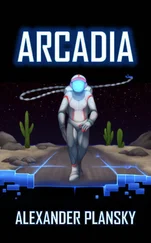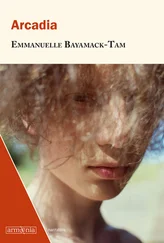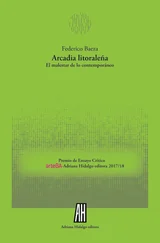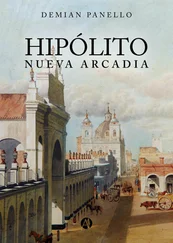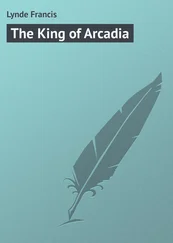Bit tries not to see what he has already seen, that her right leg and arm have atrophied and twisted. The left arm is going that way, also. There is a strange gray tone to her skin.
Hannah hides her face in the bubbles. Grete builds devil horns on her head. And Bit takes the warm washcloth and slides it along his mother’s body to scrub away the stink of her mourning. When he is cleaning her feet, Hannah lifts her face and it is featureless as an Amish doll under the scrim of soap. Grete gently clears her eyes and mouth of the suds. Bad girl, she leaves the horns.
Clean, now, Hannah is at the table. Her hair is dried and braided, and she is in an ancient sweatsuit so soft it felt like her own skin when Bit put it on her. She manages an avocado — soy cheese melt and some chai. Bit puts on an old record, and while Joan Baez warbles through the house, Grete escapes for another run in the dusk. When her footsteps have gone, Hannah turns on Bit. This is cruel, she says. Her tongue is thick in her mouth, her muscles spasming in her chin. She says, Selfish of you to make me go through this.
Selfish, he repeats, very softly. A daddy longlegs skirts the edge of sun on the linoleum.
When he responds, much later, it is toward the kitchen window. The world held in a frame calms him: the sparrows darting over the green fields, the last flush of Arcadia House through the maple trunks. That small square is all he can take, just now.
When I was little, he says. When you’d grow sad and tired and sleep all the time in the winter, I used to watch you just lying there. In the summer, you were so loud and golden and happy, and suddenly one day you’d just go away. You’d become this pale changeling in place of my mother. It was so cold in the Bread Truck. Unless Abe came home early, I didn’t eat anything from breakfast to dinner. Sometimes I tried to kiss you out of it, but I never was enough, I could never get you to wake up. Deep down, I was sure it was my fault.
It wasn’t your fault, she snaps. And it wasn’t my fault, if you’re trying to say that I was being selfish. It was brain chemistry. You of all people know this, Bit.
He looks at her. Her jaw is set: she is fighting hard. In the window, the world is blue.
All those times, you took yourself away, he says. All I wanted was for you to come back.
He watches her try to pick the crumbs from the table with the fleshy pad of her palm. She gives up, and her hand curls beside the porcelain.
But I did, she says. Come back. This time too. You weren’t there, you didn’t see it. There was a sea. It was very warm. I was holding Abe. Then the waves worked their way in between us and he drifted out. I tried to swim for him, but he was gone. I came back.
They hear Grete on the porch, stomping the mud from her running shoes. She is singing something in the off-pitch voice Helle gave her. In the dim at the kitchen table, Bit and Hannah both wince.
I’m too tired, Hannah says, under her breath. I’m too tired, Bit.
If not for me, Bit says quick and low, for Grete.
His daughter is a silhouette in the screen. Hannah reaches out and touches Bit’s cheek with her good hand. Grete runs in. She drops onto Hannah’s plate what Bit sees is a handful of wild narcissus, ripped from the ground, bulbs and all. Grannah, she shouts, her cheeks pink with delight. Flowers! In February!
Hannah smiles. It is a dry, unconvincing smile, but she takes a tiny pale bloom from the clump and puts it on the back of Bit’s hand. For you, she says. Then Hannah asks Grete about her day and Grete’s face lights up lovely under her grandmother’s attention, and Bit leaves the flower where it is until his hand jerks in revolt.
They take walks. Twice a day, they go out, and Hannah stumbles against Bit; at first, she can only make it to Midge’s before she collapses into the weather-beaten lawn chair in front of the cave-house. She peers at her feet and says, Come on, you old clodhoppers, and heaves herself up and painfully presses on. She insists on showering alone. She dresses herself; it takes an hour. She swallows her antidepressants, pain relievers, laxatives, one by one, choking them down with a look of dour satisfaction. She goes to the bathroom; it takes a half an hour, and she comes out trailing toilet paper on her shoe. Fierce, now, she is grabbing what she can to her. Soon enough, you’ll help, she tells Bit. Soon enough.
Alone at night in the stark room where he sleeps, Bit dreams of the city. It is depopulated, shining with wet. The streets are long and gray, and the shop windows are so glorious they fill him with wonder: the mannequins are luminous, at the near cusp of human, their clothes made of cut paper, a pane of glass away from dissolving in the rain. As he walks, he hears noises behind him drawing nearer: the click of nails, indrawn breath, the slide of something heavy against a wall. But when he turns, there is always the street stretching behind him into the dark and nothing moves, and he is alone and not alone, and frozen in horror.
Grete goes to school. Already thin, she grows skinny. For a week, he presses his ear to her door as she sobs into a pillow. She is always on Hannah’s telephone, her cell not working in these wilds. Her friends must grow tired of her sadness, though, and Grete begins leaving more messages than talking. When they ignore her for days at a time, he wishes he could march them all off a gangplank. Pirate Bit with the baby face; just wound his daughter and see how savage he can be.
The doctor calls, and her smooth voice calms Bit for hours afterward.
Cheryl and Diana visit; the ladies Hannah volunteered with at the library visit; Hannah’s many friends from town visit. Jincy and the boys come up for an afternoon. They play in Titus’s treehouse, and when they come out their faces are swollen and red. At dinner, the twins cling to Hannah, kissing her cheeks over and over until Jincy calls them off. Let the woman eat, she says, and they all watch breathlessly as Hannah maneuvers a cherry tomato to the side of her mouth, slides it along her lips, finally gets it in.
Goal, she says, to make the boys laugh.
When Jincy says goodbye, she whispers, This’ll be the last time for a while. My friend at the Times says it’ll be a matter of days before we’re all on quarantine. She kisses him on the nose and says, I’m not surprised you found the safest place to be when the shit hits the fan.
Stay here, he says. Be safe. But she shakes her head sadly. Our life is elsewhere.
In the afternoon, when Bit and his daughter are in town at the pharmacy, Grete begs for a twenty and buys something that she hides in her backpack. When she comes out to dinner, her hair has changed to an inky black, blue swoops of dye still on the pale skin of her forehead. She stares at Hannah and Bit, daring them to say something.
Hannah puts down her forkful of pasta. Black, she says thoughtfully. It sets off your beautiful green-gold eyes, Grete. Grete scowls, pleased. Hannah negotiates the fork almost into her mouth, missing, and all three watch the linguine slowly unthread itself from the tines and slide back onto the plate. Meals these days have become thrillers. Here, Grannah, Grete says and twists her fork into the slippery noodles, and Bit watches, fighting to stay in his seat, as his daughter feeds his mother bite by careful bite.
Grete gazes out the window with the smell of bad Chinese takeout tendriling toward them from the backseat and says, In gym today we had to run a mile. And I beat everyone, even the boys. She says it indifferently but doesn’t exhale, waiting for him to speak.
I was fast when I was your age, too, he says.
She gazes at her fingernails, says, It’s dumb, but the coach wants me to run Varsity.
Bit says, How exciting.
Читать дальше
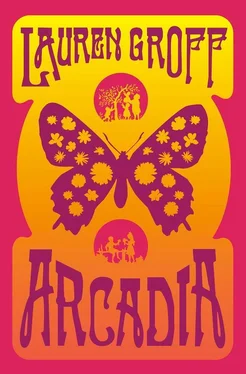
![Andrea Höst - In Arcadia [Touchstone - Extras]](/books/56405/andrea-host-in-arcadia-touchstone-extras-thumb.webp)




